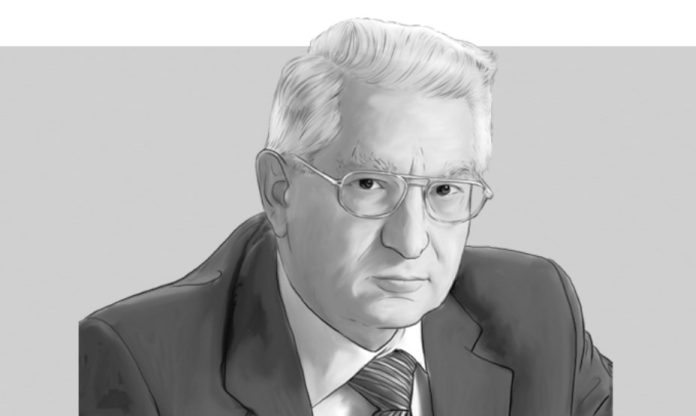– Article published on the website romanialibera.ro –
Author: Alexandru Vlad Ciurea
The other day I visited Brasov. I have never hidden the fact that I have a special feeling for this city where I grew up and trained until I left for college. And I never broke contact with him.
I don’t visit it as a tourist; I give consultations in Brasov, I participate in official events, scientific conferences, I have launched most of my books here too. I know the history of the city, I know a number of personalities, in short, I am at home.
Well, I had a big surprise a few days ago when, walking around the city centre, I discovered that all the terraces in the famous Council Square were closed. And those on Republicii Street, another well-known place in Brasov. I was told that this was the decision of the City Council, taken following a regulation adopted by the City Council.
Of course, the decision has raised the ire of terrace owners, who have protested that even during the pandemic the terraces were not closed. In other words, where there’s law, there’s no haggling!
But the problem is of a different nature and is a question of the wisdom of those who run a city, whatever it may be. The paradigm of local lawmaking differs from that of national lawmaking. Here, power is much closer to citizens. Direct interaction is much more convenient. Equally, the level of detail at which local issues are known is infinitely greater in local government. And with this knowledge of the problems, it is much easier for the authority to intervene to settle any grievances of citizens.
In this context of a close relationship between the local administration – City Council and Mayor – and citizens, the political and ideological differentiation between the elected representatives of the community is diluted. Or, it should be diluted, because it is difficult to determine, for example, the line of a bus depending on the political party a local councillor comes from. This is valid – as is my entire argument! – in the normal situation where councillors and the mayor have no interests of their own other than those of the community.
Coming back, I confess that I don’t understand what the winter open terraces are doing to anyone? There’s plenty of room for the Christmas fair, and staying on a terrace would have been short-lived due to the cold. On the other hand, why close instead of opening up as much as possible and exploiting the economic potential of the city and creating more opportunities for tourists?
One of the arguments of the Brasov administration would be that those spaces are public and should be put out to tender. Very good, why haven’t they done this before? And here I must add something else: public space belongs to everyone, not to the City Hall or the City Council. You can’t restrict a right of the people of Brasov to do – legally and for a fee, of course – something on a space that belongs to the people of Brasov. This kind of confusion is so common in Romania that it is said that “the Government gives…”, when the Government manages our money, not owns it. The confusion is maintained for electoral interests by our politicians, but this is another matter.
Local government also has an advantage: it can quickly talk to citizens. I will give you the example of a mayor of a nearby commune in Covasna county, Dobârlău. A young and coherent mayor who, in a few days, decided, through a lightning poll, the destination of some money left in the commune’s treasury before the winter holidays. She asked her citizens what they would prefer: to put on a Christmas show, to install holiday lighting in all four villages of the commune, or to allocate the money to projects that the commune has underway (and it has projects worth 20 million euros!). People overwhelmingly responded that they wanted holiday lighting. Based on this response, the commune administration took the necessary decisions and went to work…
The full article can be read HERE


